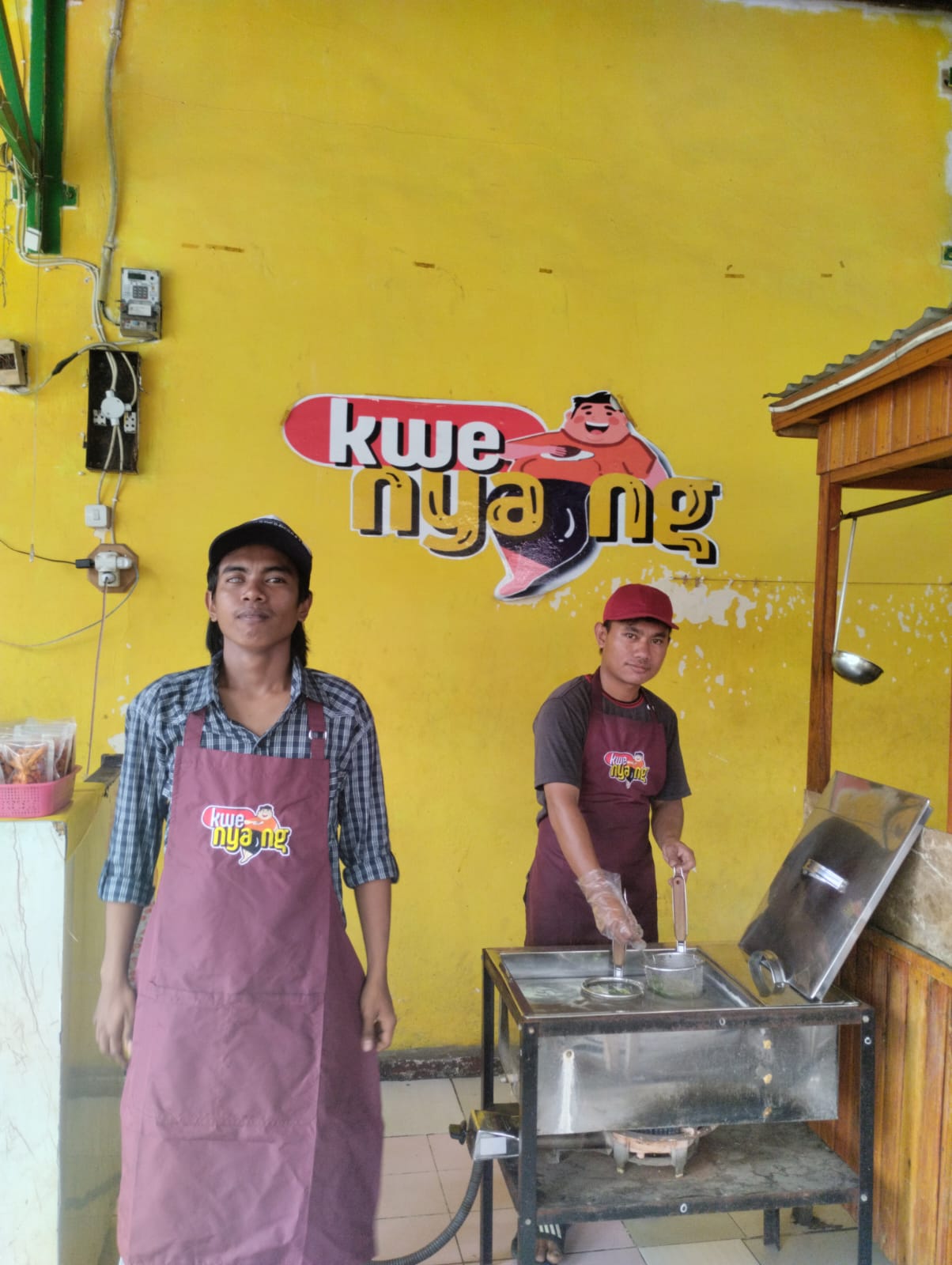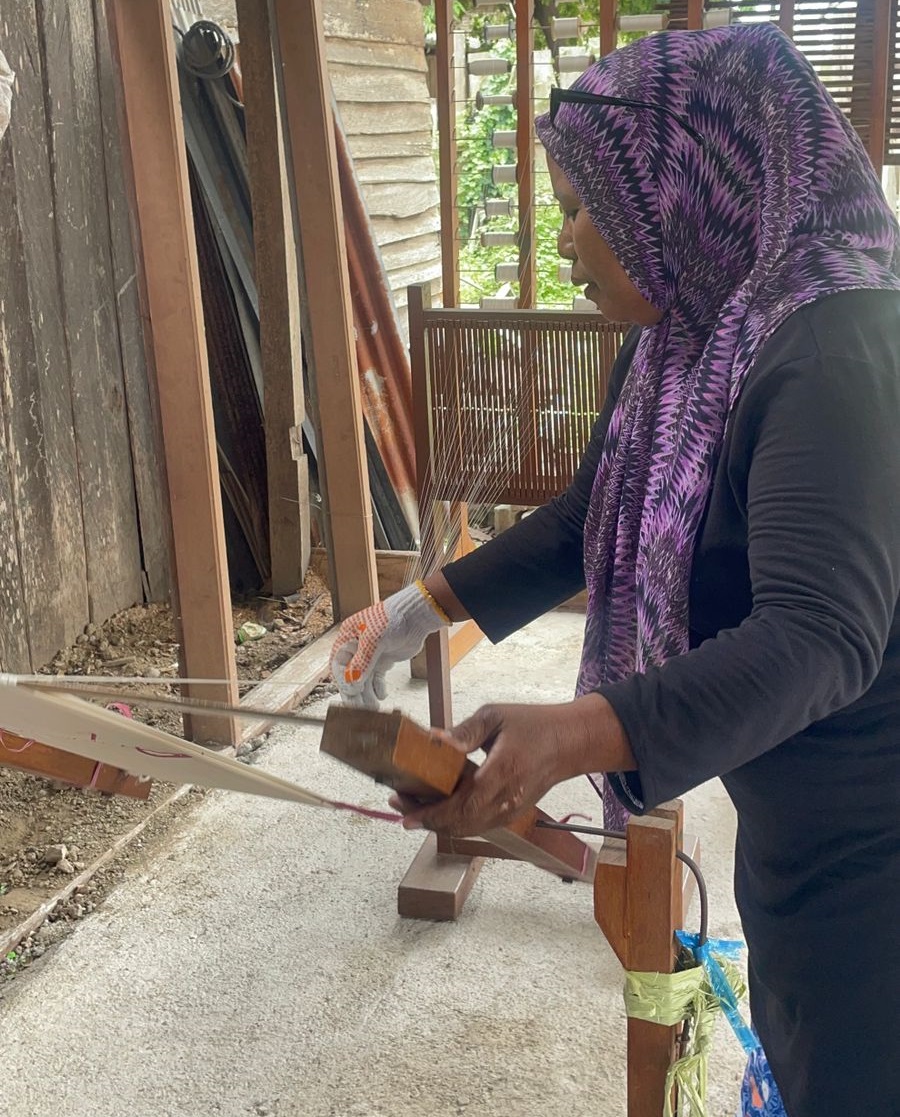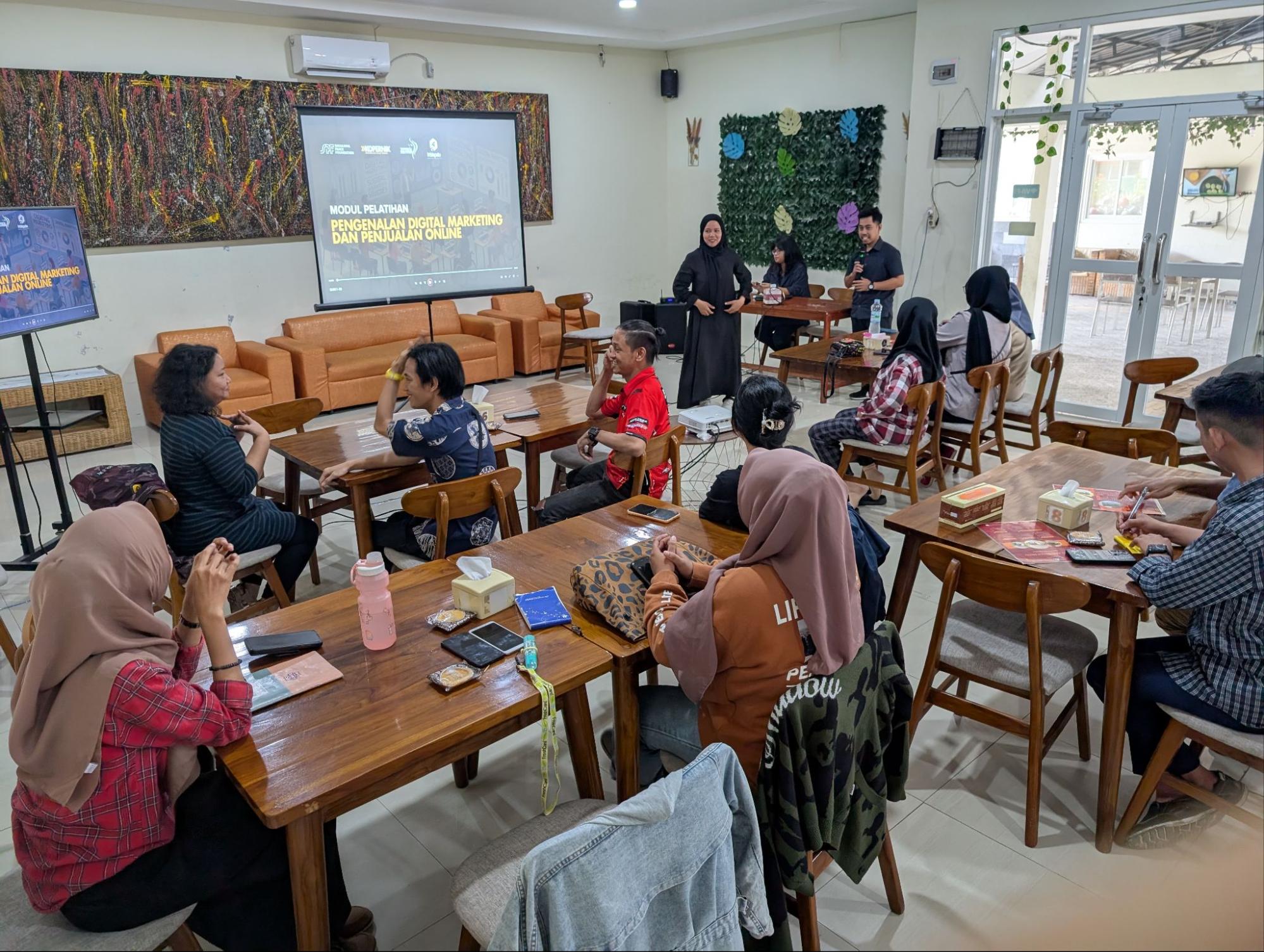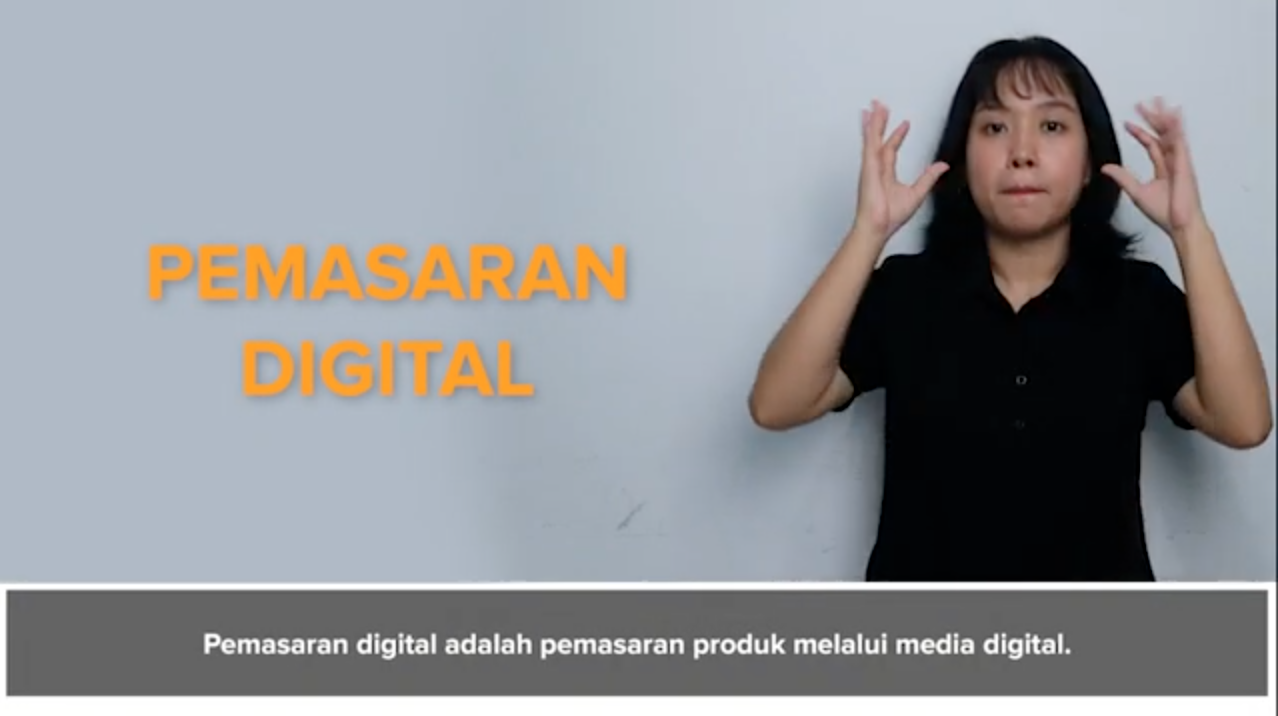On December 3rd, we observe the International Day of Persons with Disabilities, a day to reflect on progress made and challenges remaining in creating an inclusive and sustainable future. This year’s theme focuses on amplifying the leadership of persons with disabilities, a vital step toward enabling full participation in society. As we celebrate achievements and advocate for equal rights, it is essential to confront the persistent inequities and work together to build environments where everyone can contribute and thrive.
Despite progress, millions of people with disabilities worldwide continue to face systemic barriers, particularly in accessing employment and economic opportunities. In Indonesia, where 17.74 million Indonesians identify as having disabilities, only 44% participate in the workforce, compared to 69% of those without disabilities. Furthermore, 43% of persons with disabilities earn less than USD 67 per month, placing them in the lowest economic group.
Beyond economic disparities, social inequities persist, including widespread stigma about the employment capabilities of persons with disabilities. Many employers mistakenly believe they are suited only for certain types of work, often dismissing qualifications in favor of perceived limitations. Such biases lead to the rejection of job applications based on disability rather than merit, perpetuating cycles of exclusion and discouraging individuals from seeking opportunities for economic independence.
One of the core principles of the United Nations’ Sustainable Development Goals (SDGs) is to ensure no one is left behind. SDG Goal 8 specifically targets inclusive and sustainable economic growth, emphasizing equal access to employment opportunities. Many organizations have pledged to create equitable workplaces, but challenges remain. These include complex hiring processes, inadequate approaches to inclusive interactions, and a lack of accessible workplace infrastructure.
Recognizing these challenges, Kopernik, in partnership with the Sasakawa Peace Foundation, conducted a rapid assessment in Palu, Central Sulawesi. Guided by the Social and Solidarity Economy (SSE) framework, this assessment led to two pilot interventions designed to foster inclusivity and address barriers faced by persons with disabilities.
Matchmaking Program: Expanding Access to Job Opportunities
Kopernik’s first intervention was a matchmaking program connecting persons with disabilities to social enterprises through one-month apprenticeships. In collaboration with Sikola Mombine, a local organization in Palu, individuals with physical disabilities and social enterprise owners participated in group discussions, fostering an open exchange of needs and aspirations.
Participants expressed eagerness to develop skills and contribute meaningfully to the workforce. Social enterprises showed willingness to hire people with disabilities but were uncertain about how to proceed. To bridge this gap, Kopernik collected detailed information on interests and preferences, enabling tailored matches between individuals with disabilities and suitable social enterprises.
Two pilot apprenticeships were implemented. Fiskal, a visually impaired individual, worked as a waiter at Kwenyang Palu, a local restaurant. Meanwhile Ibu Zaenab, who has a leg disability, joined Tenun Al-Hikmah, a weaving social enterprise, where she learned weaving techniques. Feedback from families, colleagues, and customers highlighted the initiative’s impact.
"Since Fiskal started working, he wakes up early every morning. Before this job, he had very little to do at home. This is the longest job he has ever had, and I am so happy to see him leaving home with purpose each day.”

Fiskal on the first day of his apprenticeship at a local restaurant in Palu
For Ibu Zaenab, the apprenticeship sparked a dream of starting her own weaving business. Impressed by her dedication, the weaving enterprise offered her a permanent position. The owner remarked:
"I am very happy to work with Zaenab. Although she cannot sit for long periods due to her leg disability, we have adapted alternative weaving techniques for her. She is diligent, always arrives early, and learns quickly. I offered her permanent employment not out of pity, but because I see potential for her to become an excellent weaver.”

Ibu Zaenab weaving on a traditional loom during her apprenticeship
This program demonstrated the transformative power of inclusive employment, fostering independence, confidence, and social integration for individuals while benefiting business through motivated and resilient team members. This aligns with findings from Kalargyrou (2014), highlighting that employing individuals with disabilities can provide companies with a competitive advantage. This advantage stems from their high job loyalty, low turnover rates, ability to enhance coworker productivity, and their role in creating a positive and inclusive work environment.
Special Module: Inclusive Module for People with Hearing Disabilities
The second intervention focused on developing a tailored learning module for individuals with hearing disabilities. This initiative stemmed from our initial research, which revealed a significant gap: the lack of learning resources specifically designed for this segment of the community. Many individuals with disabilities operate small businesses, but struggle to scale operations due to limited access to training resources. Addressing this, we curated a module focused on digital marketing and WhatsApp Business tutorials. Beyond sharing practical skills, the primary goal of this module was to identify features such as layout, visuals, and sentence structure that make the content accessible for people with hearing disabilities.

Testing the special module to participants with hearing disabilities
This module was created in collaboration with Inkubator Bisnis (InBis), a learning and development organization supporting MSMEs in Palu. By building on existing digital marketing modules from both Kopernik and InBis, the project was further enhanced through the support of Sikola Mombine and sign language interpreters from Palu, ensuring the module was accessible to individuals with hearing disabilities. Significantly, two of the interpreters involved were individuals with hearing disabilities themselves, offering invaluable insights that shaped the design and accessibility of the module.
Through their insights, we learned how factors such as expression, eye contact, and translation speed significantly influence the attention and understanding of participants. For example, our original module had only 27 slides. After testing it with 10 individuals with hearing disabilities, it expanded to 293 slides to accommodate shorter captions and other necessary adjustments. This iterative refinement process was a profound learning experience for the Kopernik team, marking our first project involving disability-inclusive design.
The collaboration was not only a milestone for Kopernik but also a meaningful experience for the sign language interpreters. One interpreter shared:
"This is the first time we have recorded a learning module for people with hearing disabilities. I am proud to be part of a project that paves the way for a brighter future, where people with disabilities can participate more actively in society and economic activities. I hope this module can be expanded for people with disabilities to other areas beyond Palu”.

Final layout of the special module after refinement
Achieving Inclusivity: One Action at a Time
Kopernik believes that fostering inclusive environments is a crucial step toward achieving inclusivity for persons with disabilities. While the scope of our matchmaking pilot is currently small, the initiative demonstrates the meaningful contributions that people with disabilities can make to the organizations they work at. We hope these insights inspire other organizations to create pathways for persons with disabilities to access more employment opportunities.
Through this pilot project, we learned the critical importance of providing pre-employment training for persons with disabilities to better prepare them for the workplace. These training sessions can focus on essential skills such as communication, task management, and workplace etiquette, tailored to meet the specific needs of individuals and the roles they will pursue. By fostering a sense of readiness and confidence, pre-training can bridge the gap between individual potential and workplace expectations. It equips persons with disabilities to contribute more effectively and also ensures a smoother transition into employment, benefiting both employees and employers. This approach is key to fostering long-term success and inclusivity in the workplace, ultimately promoting a more equitable society.
The Kopernik Team with Sikola Mombine, sign language interpreters and participants with disabilities in the forum group discussion in Palu
On this International Day of Persons with Disabilities, we envision a world where persons with disabilities have equal opportunities in all aspects of life. It is a time to reflect on the small but impactful actions that can be taken, both individually and collectively, to bring this vision to life. Each action contributes to building a future that celebrates diversity, fosters inclusivity, and ensures dignity and opportunity for all.


